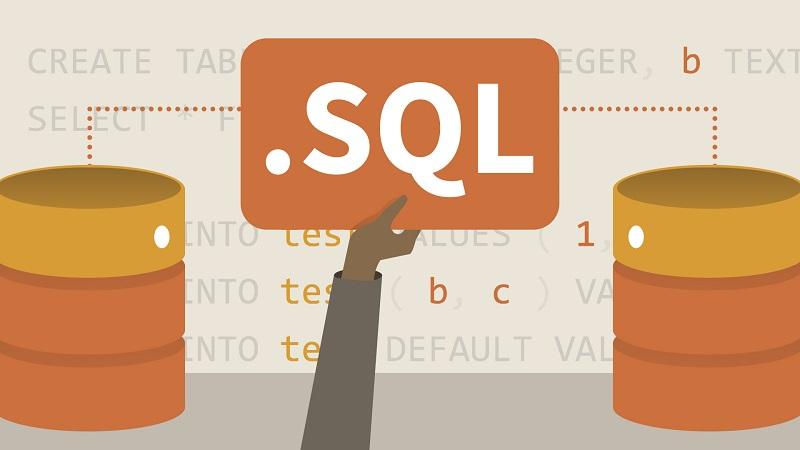For a Tester, the SQL expertise depends on different projects. If your project is about data warehousing, and most of the testing is focused on the accuracy of the data, then the tester needs to have knowledge of SQL. When your project only needs to check the display interface, it is unnecessary knowledge of SQL. If you try to interview, if you are interviewing if a tester has good knowledge of SQL, then their profile will be preferred over other records, which is a big plus of a tester. . As for work, this will make him stand out from the crowd and his knowledge of databases and SQL will help them to get their jobs done. So what is SQL?
1. What is SQL?
SQL is a computer language that helps to store and retrieve data stored in a relational database. SQL stands for Structured Query Language, a structured query language. 
SQL can be considered as a common language that any relational database system (RDBMS) must meet such as: Oracle Database, SQL Server, My SQL, …
SQL is a standardized language by ANSI (American National Standards Institute) – American National Standards Institute. It is also the language commonly used in relational database management systems and support for use in large technology companies.
2. Why use SQL?

When an enterprise needs a system to manage employee information, they must design a database to manage. Storing information in excel is very difficult to manage. In case you want to add or edit information someone will take a lot of time. SQL will help you manage and query information faster and maintain it easier. Therefore, people often use SQL for the following purposes:
- Create new databases, tables and views.
- Edit the records into a database.
- Delete records from a database.
- Retrieve information from the database.
3. The project / situation requires SQL knowledge
- Data movement
- Database to level up
- Smart business project
- Data warehouse
4. Knowledge of SQL and database that Tester needs
- Get to know its different types of databases.
- Have expertise in connecting to databases for different clients
- Understand the relationship between database tables, keys, and indexes
- Can write basic and complex SQL statements.
- Explain more complex queries.
- Knowledge of database tables, indexes and keys
5. Common SQL statements used in testing
- Data Manipulation Language (DML): Used to retrieve, store, modify, delete, insert and update data in a database. For example, the SELECT, UPDATE and INSERT statements.
- Data Definition Language (DDL): Used to create and modify the structure of database objects in a database. For example: CREATE, ALTER and DROP.
- Transactional Control Language (TCL): Manage the various transactions that occur in the database. For example, the COMMIT, ROLLBACK statements.
- Inner Join: Get matching records from both tables.
- Distinct: Get different values from one or more fields.
- In: This operator is used to find the value in the list or not.
- Between: This operator is used to retrieve values in a range.
- Like: This operator is used to perform pattern matching using wildcards; It is used in where clauses.
- Order By clause: Sort the table records in ascending or descending order. The default order is ascending.
- Group By: Use Group By statements with aggregate functions to group the result set with one or more columns.
- Aggregate function: Perform calculations on a set of values and return a single value. For example: Average, Min, Max, Sum, Count, …
Above is the necessary information of SQL for a tester. The following articles will go into the specific statements for each case when using SQl statements. Thanks everyone very much! 
References:
https://www.tutorialspoint.com/sql/sql-overview.htm https://www.oodlestechnologies.com/blogs/Importance-of-SQL-for-testers/ https://menaentrepreneur.org/2017/07 / the-importance-of-sql-skills-for-testing-profile /
